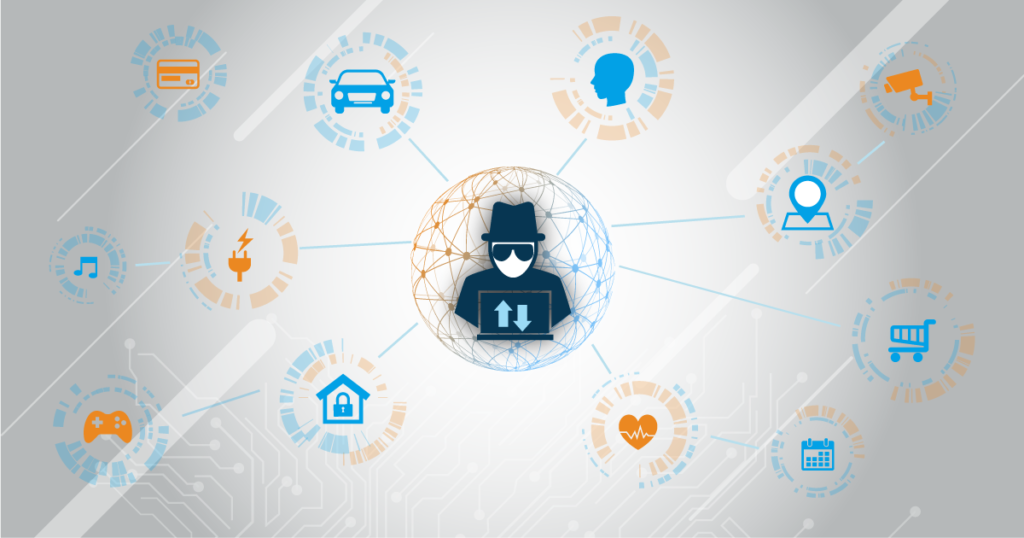As our society becomes increasingly interconnected and reliant on technology, the importance of cyber security has never been more evident. Cyber attacks have grown in scale and sophistication, posing significant threats to individuals, organizations, and even governments. In this article, we will explore the future of cyber security engineering, examining emerging trends and making predictions about the evolving landscape.
Table of Contents
The Growing Demand for Cyber Security-Engineers

With the rise in cyber threats, the demand for skilled cyber security engineers is skyrocketing. Organizations across various sectors are recognizing the need to strengthen their defenses and protect sensitive data. Cyber security engineers play a crucial role in safeguarding digital assets, identifying vulnerabilities, and implementing robust security measures. From multinational corporations to small startups, all entities need the expertise of cyber security engineers to ensure their systems remain resilient against attacks.
Evolving Technologies and Their Impact on Cyber-Security Engineering
As technology advances, so do the methods employed by cybercriminals. Consequently, cyber security engineering must keep pace with these developments. Artificial intelligence (AI), machine learning (ML), and blockchain technology are transforming the cyber security landscape. AI and ML algorithms can analyze vast amounts of data to identify patterns and anomalies, enhancing threat detection and response. Blockchain technology, with its decentralized and immutable nature, can provide secure platforms for data storage and transactions. Cyber security-engineers must adapt to these evolving technologies and leverage them to stay ahead of cyber threats.
The Rise of IoT and Its Security Challenges

The Internet of Things (IoT) is revolutionizing various industries, enabling interconnected devices to communicate and share data. However, this increased connectivity also presents significant security challenges. Cyber security engineers must address the vulnerabilities associated with IoT devices, ensuring they are adequately protected from exploitation. The vast number of IoT devices, coupled with their diverse nature and limited computational power, poses unique security concerns. Engineers must focus on developing robust authentication mechanisms, encryption protocols, and intrusion detection systems tailored for IoT environments.
Cloud Security: Protecting Data in a Borderless Environment
Cloud computing has transformed the way organizations handle data and deploy services. While cloud platforms offer numerous benefits, they also introduce new security risks. Cyber security engineers must design and implement comprehensive strategies to safeguard data stored in the cloud. Encryption, access controls, and continuous monitoring are essential components of cloud security. Additionally, engineers must ensure the integrity and confidentiality of data during transit and at rest, mitigating the risks associated with unauthorized access and data breaches.
The Human Factor: Educating and Empowering Users
Despite advanced security technologies, human error remains a significant contributor to cyber breaches. Cyber security engineers must prioritize educating and empowering users to adopt safe online practices. Training programs, awareness campaigns, and simulations can help individuals recognize phishing attempts, practice strong password hygiene, and exercise caution when sharing sensitive information. By fostering a security-conscious culture, engineers can reduce the likelihood of successful attacks and fortify the overall cyber defense of organizations.
Regulatory Landscape and Compliance Requirements
The evolving regulatory landscape plays a critical role in shaping cyber security practices. Governments around the world are enacting stringent data protection laws and regulations to safeguard individual privacy and ensure business accountability. Cybersecurity engineers must remain well-versed in these legal requirements and compliance frameworks. By adhering to industry standards and implementing appropriate security controls, organizations can avoid penalties, reputational damage, and loss of customer trust.
Cyber Security Engineering and Ethical Hacking

Ethical hacking, also known as penetration testing or white hat hacking, is an essential component of cyber security engineering. It involves authorized professionals attempting to exploit vulnerabilities in systems, networks, and applications to identify weak points before malicious hackers can exploit them. By conducting ethical hacking exercises, cyber security engineers can proactively detect and address security flaws, strengthening the overall defense posture of an organization. This practice helps in identifying potential entry points, assessing the effectiveness of security controls, and enhancing incident response capabilities. As cyber threats continue to evolve, ethical hacking will remain a crucial tool in the arsenal of cyber security engineers.
Artificial Intelligence and Automation in Cyber-Security Engineering
Artificial intelligence (AI) and automation technologies are revolutionizing the field of cybersecurity engineering. AI-powered systems can analyze vast amounts of data, detect anomalies, and identify potential threats in real time. By automating routine security tasks, such as log analysis and incident response, cyber security engineers can focus on more complex and strategic activities. AI algorithms can also learn from previous attacks, continuously improving their ability to detect and mitigate emerging threats. However, it is important to strike a balance between human expertise and automation to ensure accurate decision-making and adaptability to evolving attack techniques.
Collaboration and Information Sharing in Cyber Security-Engineering
Cyber security threats transcend organizational boundaries, requiring collaborative efforts to combat them effectively. Cyber security engineers must actively engage in information sharing and collaboration with industry peers, government agencies, and security communities. Sharing threat intelligence, best practices, and lessons learned can significantly enhance the collective defense against cyber attacks. Open communication channels and coordinated incident response procedures enable faster identification and containment of threats. Additionally, collaboration fosters innovation, allowing cybersecurity engineers to collectively develop cutting-edge solutions and stay one step ahead of adversaries.
The Future of Cyber Security Engineering: Predictions

Looking ahead, the future of cyber security engineering holds immense promise and challenges. As technology continues to evolve, cyber threats will become more sophisticated, necessitating the development of advanced defense mechanisms. The integration of AI, machine learning, and automation will become mainstream, enabling faster threat detection and response. Cyber security engineers will play a pivotal role in securing emerging technologies like quantum computing and 5G networks. The demand for skilled professionals in this field will continue to rise, necessitating ongoing training and education. Ultimately, cyber security engineering will be a critical pillar of our digital society, protecting our privacy, data, and critical infrastructure.
Conclusion
In conclusion, the future of cybersecurity engineering is both exciting and challenging. With the rapid advancement of technology, cyber threats will continue to evolve, requiring innovative approaches and solutions. Cybersecurity engineers will play a vital role in securing our digital ecosystem, protecting organizations and individuals from malicious actors. By staying abreast of emerging trends, leveraging cutting-edge technologies, and fostering collaboration, cyber security engineers can proactively defend against threats and mitigate the potential impact of cyber-attacks. As we embrace the digital future, the role of cybersecurity engineering will be more critical than ever in ensuring a secure and resilient digital environment. learn about: Unleash the Power of Cybersecurity: Defend Against the Ever-Evolving Metamorphic Virus Menace